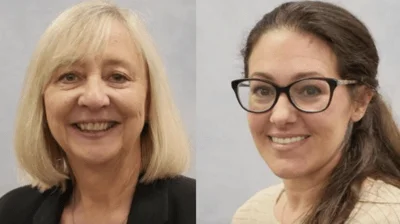A property tax freeze is not the solution to Illinois’ high tax problem, experts from across the state told legislators on Friday during a long Property Tax Subcommittee hearing.
In fact, many of the experts testified that a property tax freeze might worsen the situation in some places.
Teresa Kernc, mayor of the Village of Diamond, said her community of 2,500 residents relied on property taxes and federal help when a devastating tornado hit the area in November 2013. Diamond was able to recover, but other municipalities might not have such luck if there is a property tax freeze.
“I ask you all to please remember that every year municipalities in Illinois are experiencing a growing number of tornadoes and floods,” Kernc said. “A property tax freeze would severely limit some of those municipalities from recovering after a disaster.”
Kernc argued that no one raises property taxes with a clear conscience.
“I can assure you that never once have I heard a mayor mention raising property taxes without a large amount of concern and regret,” Kernc said. “As mayors, we encounter those we serve every single day ... raising property taxes is not something that we want to do. In fact, it is something that we try very hard not to do.”
Illinois has the second-highest property taxes in the nation and many have claimed that the taxes are driving out residents and businesses. Republican lawmakers have proposed House Bill 4066, which would impose a four-year property tax freeze and give voters control via simple local referendums to lower or raise taxes as they see fit. The bill was being debated in the House on Friday, with testimony from experts.
James McEnroe, interim superintendent of business operations from Harvey School District 152, claimed that Harvey is struggling to keep its children in the community and schools.
“Freezing the property tax bills of the people in Harvey is not going to help Harvey’s people or the students in Harvey School District 152,” McEnroe said. “We have homeowners who have been pushed out of their homes; we have empty lots; we have bordered up buildings; and we have students who needs education.”
Crime has been high, and freezing property taxes will be detrimental to the community, which collects only 66 percent of every tax dollar, according to McEnroe.
“Freezing property taxes will not help us; however, having the state work together, having both sides of the aisle talk to one another, having a budget and having all of those things that shows that the state of Illinois’ heart is in the right place allows us to serve these children better,” McEnroe said.
Rep. Mark Batinick (R-Plainfield) contended that the state needs a freeze because high property taxes have frozen business investments in the south suburb of Chicago.
“It’s the overwhelming issue that’s hitting the state and affecting your school districts,” Batinick said. “What business is going to come and grow and expand? I mean, the south suburbs has it all: They have great transportation; they’ve got an able-bodied workforce with a slightly higher unemployment rate so we can get workers into these facilities; they’re close to Chicago, rail, all the stuff. But there is no growth there because the property taxes are out of the moon.”
However, Ted Dabrowski, vice president of policy from the Illinois Policy Institute, argued that property tax reform without a comprehensive look at the root cause will only worsen things.
“We have to be careful that the urgency and the pressure to put a property tax freeze don’t force us into partial reforms that could actually lead to a worse situation in just a few years,” Dabrowski said. “Property tax reform must be done responsibly so that we don’t have untended consequences in just a few years. The current solutions that are being debated are only focused on a property tax freeze. They only address the symptom ... but most of the discussions do not address the cost drivers -- the actual drivers of why property taxes are so high in the first place.”
Dabrowski said that to fix the property tax problem, the state needs to give more control to local government, reduce redundancies in local government, stop unfunded mandates and fix workers' compensation.



 Alerts Sign-up
Alerts Sign-up